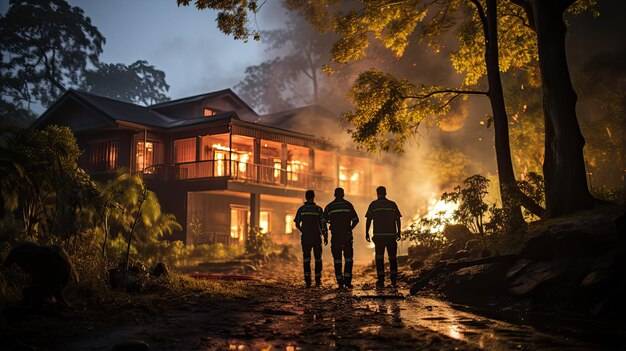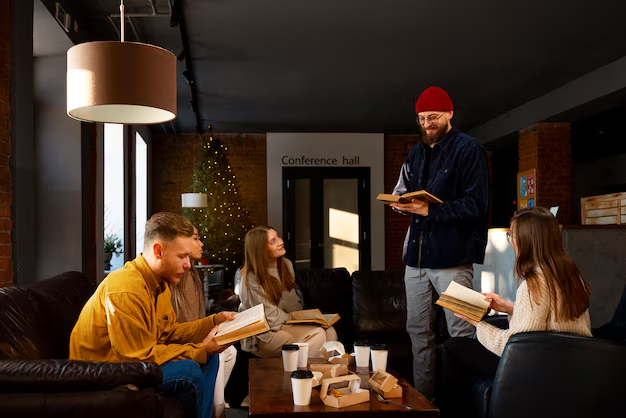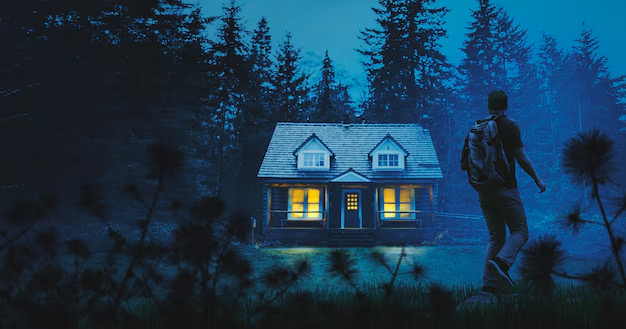Tourists Descend on Private Home as I sit on my porch, sipping my morning coffee, a sense of unease Unexpected Visits hits me. The street, once peaceful, is now bustling with strangers. They’re dragging suitcases and taking photos, their faces full of excitement. This change from tranquility to chaos makes me wonder, “How did we get here?”
The rise of vacation rentals and home-sharing has changed our neighborhoods. Homeowners now rent out their homes to tourists. This shift, known as “residential hospitality,” brings both benefits and challenges. It changes neighborhoods and affects homeowners and their communities.

Key Takeaways
- The rapid growth of vacation rentals and home-sharing platforms has led to an influx of tourists in residential neighborhoods.
- This trend, known as “residential hospitality,” is transforming the way people travel and experience local communities.
- Homeowners are offering their properties for short-term rentals, leading to both benefits and challenges for the surrounding neighborhoods.
- The impact of this phenomenon is significant, with both advantages and disadvantages emerging for homeowners and their local communities.
- Understanding the dynamics of residential hospitality is crucial as the trend continues to evolve.
Understanding Residential Hospitality Trends
The hospitality world has changed a lot in recent years. This change is thanks to the fast growth of vacation rentals and home-sharing. Now, more travelers look for real and unique stays instead of traditional hotels.

Rise of Vacation Rentals and Home Sharing
Platforms like Airbnb, VRBO, and HomeAway have changed how we book places to stay. They let homeowners rent out their homes for short periods. This gives guests a more personal and real experience. Because of this, vacation rentals have become very popular. People want to avoid the usual hotel feel and enjoy the unique vibe of a private home.
Popularity of Alternative Accommodations
- People want unique and unforgettable stays, making alternative accommodations more popular. This includes vacation rentals, home-sharing, and boutique hotels.
- Travelers now look for places that let them connect with the local culture and community. Hotels just don’t offer that.
- These home-sharing platforms have changed the hospitality industry. They offer new chances for homeowners and guests to be part of the vacation rentals and alternative accommodations market.
The need for unique and tailored travel experiences is growing. This means short-term rentals and peer-to-peer hospitality will become more important in the hospitality world.

Tourists Descend on Private Home: A Growing Phenomenon
More and more tourists are now staying in private homes across the United States. Homeowners are welcoming travelers into their neighborhoods for a real, personal experience. This has led to a big jump in short-term rentals in residential areas. Homeowners see the value in offering informal lodging and private home sharing.
The rise of neighborhood tourism has changed many communities. Tourists descend on private home places now. This change comes from easy online booking, wanting a unique trip, and homeowners making money from rentals.
Alternative accommodations like vacation rentals and home-sharing services are big reasons for this trend. These platforms help homeowners list their places and travelers find unique stays. So, many neighborhoods now see more short-term rentals for private home sharing and informal lodging.

This trend has economic perks for homeowners but also concerns for neighborhoods. With tourists descending on private homes, there are worries about noise, privacy, and community changes. The popularity of neighborhood tourism is making people call for new rules to tackle these issues.
Challenges of Neighborhood Tourism
Vacation rentals and home-sharing platforms are getting more popular. This brings more tourists to local neighborhoods. These visitors can change the quiet life of these areas.
Noise and Privacy Concerns Tourists Descend on Private Home 2024
Residents worry about noise and privacy. Guests coming and going from rentals make more noise and disturb the peace. It’s hard for people to keep their homes quiet and private.
Disruption of Community Dynamics
More tourists change the feel of a neighborhood. Neighborhood tourism brings in people who don’t live there. This can break the strong community ties and sense of place.
Also, locals might have to move because of vacation rentals. Owners choose to rent out short-term instead of long-term. This can make the community feel less like a community.
As neighborhood tourism grows, finding a solution is key. It’s important for homeowners, policymakers, and the community to work together. They need to balance the needs of residents and the tourism industry.
Legal and Regulatory Implications
Local governments are dealing with the rise of vacation rentals and home-sharing. They focus on zoning laws and short-term rental rules. These rules help balance the benefits of hosting guests with community concerns.
Zoning Laws and Short-Term Rentals
Cities have made zoning laws to control short-term rentals in residential areas. These laws cover where you can rent out your property, how many guests you can have, and parking needs. Homeowners must follow these laws to rent out their homes legally.
Some places require short-term rental owners to get licenses or register their properties. This helps with tax collection and keeps an eye on the rental market. It also helps protect the local housing market and community feel.
The rules around short-term rentals are always changing. Homeowners and guests need to keep up with the latest laws. This ensures they follow the rules and have a good experience renting out their property.
Best Practices for Homeowners and Guests
The trend of hosting guests at home is growing. Both homeowners and guests have a big role in making this experience good and sustainable. By following best practices, they help the industry grow and respect local communities.

Setting Clear Expectations and Rules
Homeowners should make it clear what guests can expect and what the rules are. This keeps the property safe and makes sure everyone has a good time. It’s important to set rules about when guests can arrive and leave, how loud they should be, and how they should behave.
Respecting Local Communities
Guests should think about how their stay affects the local area. It’s key to respect the host’s privacy and the neighborhood’s peace. Following quiet hours, being mindful of parking, and showing respect for local customs helps avoid problems and build good relationships.
| Best Practices for Homeowners | Best Practices for Guests |
|---|---|
| Establish clear check-in and check-out times Communicate noise level guidelines Provide guest conduct policies Ensure the property is well-maintained and clean | Respect noise guidelines and be considerate of neighbors Follow parking and traffic rules Engage with the local culture in a respectful manner Leave the property in the same condition as found |
By following these best practices, both homeowners and guests help the home hospitality industry grow positively. They also show respect for the communities they visit.
Conclusion
The rise of tourists staying in private homes has changed how we travel, bringing in a new era of home hospitality. This shift has opened doors for homeowners and guests, but it also brings challenges for local areas.
It’s important for everyone – homeowners, guests, and local leaders – to work together. They need to find a way that lets the home-sharing industry grow. At the same time, it must keep neighborhoods feeling like home and safe for everyone.
Looking ahead, we’ll keep a close eye on how home hospitality affects local communities. Finding the right balance is key. This balance will help the home-sharing industry grow in a way that’s good for everyone involved.
FAQ
What is the impact of vacation rentals and home-sharing on local communities?
Vacation rentals and home-sharing bring both good and bad to local areas. They offer new income for homeowners. But, they can also change the feel of neighborhoods, causing worries about noise, privacy, and community life.
What are the legal and regulatory implications of short-term rentals?
Local governments face the tough task of balancing the perks of short-term rentals with their downsides. They must deal with zoning laws, taxes, and how they affect housing costs. Officials aim to support the rental market while keeping neighborhoods friendly and livable.
What are the best practices for homeowners and guests in the residential hospitality industry?
Homeowners should clearly tell guests what’s expected of them. This includes rules and responsibilities to keep the community strong. Guests should respect their hosts and the area by following quiet hours and behaving well. This helps avoid trouble.






